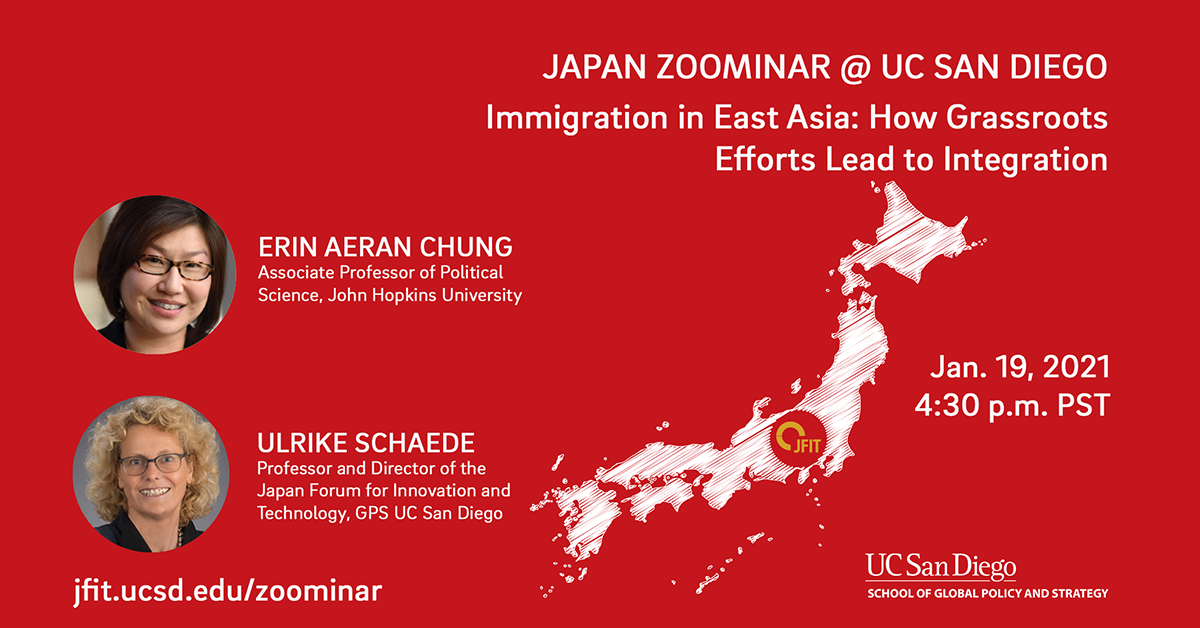Jan 19, 2021–Jan 19, 2021 from 4:30pm–5:30pm
JFIT Zoominar: Immigration in East Asia: How Grassroots Efforts Lead to Integration

Until the early 2000s, Japan, South Korea and Taiwan all had restrictive immigration policies and effective social exclusion of immigrants. But since then, their paths have diverged. Whereas Taiwan has remained restrictive, Japan took incremental steps to expand immigrant services at the grassroots level, and South Korea enacted sweeping immigration reforms. What explains these divergent patterns of immigrant incorporation? A deep analysis of the role of civil society actors, including immigrants themselves, reveals how immigrant interests and actors shape public policy. Our conversation will explain the data base and discuss what these different paths mean for the three societies and economies.
Cosponsored by the Korea-Pacific Program.
Speakers:
• Erin Aeran Chung, Associate Professor of Political Science, John Hopkins University
• Ulrike Schaede, Professor and Director of the Japan Forum for Innovation and Technology, GPS UC San Diego
Date and Time
Jan 19, 2021–Jan 19, 2021
from 4:30pm–5:30pm
Location
Online Webinar
Event Registration
Registration for this event is required.
Visit the registration page for details.
Event Fee
Free
Contact
Simeng Zeng • s3zeng@ucsd.edu
Audience
Faculty, Staff, Students, The General Public